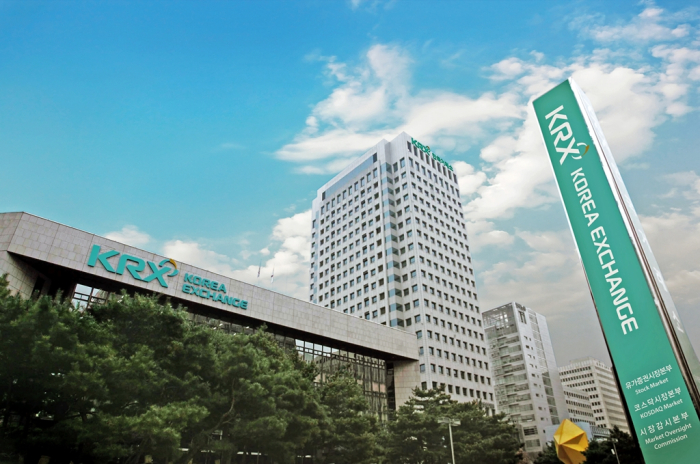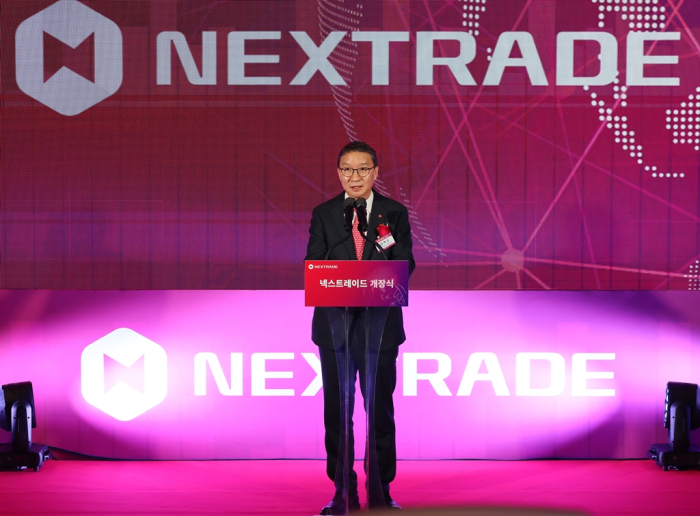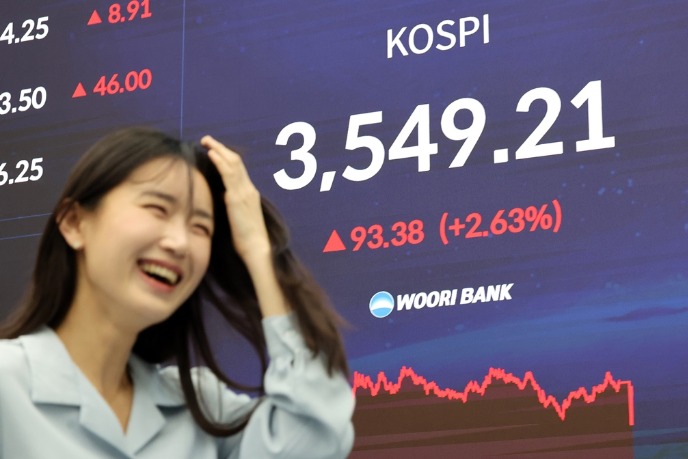The Korea Exchange (KRX) will slash stock trading fees by up to 40% in December, marking the first overhaul of its pricing structure since the bourse operator’s debut in 2005, according to people familiar with the matter on Thursday.
The move underscores mounting competitive pressure from Nextrade (NXT), Korea’s first alternative stock exchange, which has rapidly captured market share since its launch in March.
KRX, which has operated a single fee rate of 0.0023% for nearly 20 years, now plans to introduce a differentiated model.
Maker orders, placed at quoted prices, will incur a 0.00134% charge, while taker orders, executed at prevailing market prices, will have a 0.00182% fee.
The cut will initially be in effect for two months, with a decision on a permanent reduction after a review of the revenue and market share impact, sources said.

Korea Exchange
“The bourse is targeting a December rollout,” said one of the sources, adding that technical adjustments at securities houses could delay the change until early next year.
KRX’S PROFITS HURT BY THE EMERGENCE OF NXT
Nextrade, which offers longer trading hours and lower fees, has quickly emerged as a rival to the KRX.
NXT’s market share has climbed to more than 30% by July from 3.8% in its first month.
Korea Exchange’s fee income fell 19% in the first half of this year to 94.2 billion won ($67 million), highlighting the threat.
While permanent fee changes require review by the Financial Services Commission’s market efficiency committee, temporary cuts of less than three months can be implemented by KRX’s own decision.

Kim Hak-soo, chief of Nextrade (NXT), Korea’s first alternative stock exchange, speaks at NXT’s opening ceremony on March 4, 2025
KOSPI ROCKETS PAST 3,500 TO RECORD HIGH
KRX’s move coincided with a record-setting day on Seoul’s stock market.
The main benchmark Kospi index surged 2.7% to close at 3,549.21, breaching the psychologically important 3,500 mark for the first time.
The rally was powered by a surge of foreign fund inflows, with overseas investors buying 3.1 trillion won ($2.2 billion) of equities, the largest daily net purchase on record.
Nearly 80% of foreign buying was concentrated in the semiconductor sector.
SK Hynix Inc. soared 9.9% to close at 399,500 won, while Samsung Electronics Co. finished up 3.5% at 89,000 won.

Samsung Electronics Chairman Lee Jae-yong (left) shakes hands with OpenAI CEO Sam Altman after signing a letter of intent (LOI) to cooperate in building a global AI infrastructure
Investors were buoyed by news that the two chipmakers will join OpenAI’s $500 billion “Stargate” initiative to build next-generation AI infrastructure, fueling expectations of a memory chip supercycle.
Analysts said the combination of government market reforms, a weaker dollar and renewed enthusiasm for Korean technology stocks could drive further gains.
“Korean equities are positioned to outperform the US in the second half,” said Kim Hak-kyun, head of research at Shinyoung Securities Co. “The structural shift in global capital flows is only just beginning.”
Write to Sung-Mi Shim at smshim@hankyung.com
In-Soo Nam edited this article.
